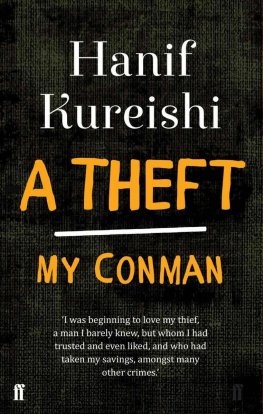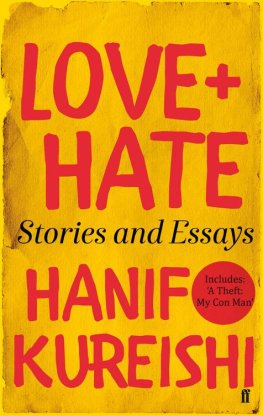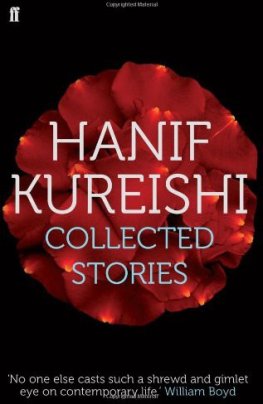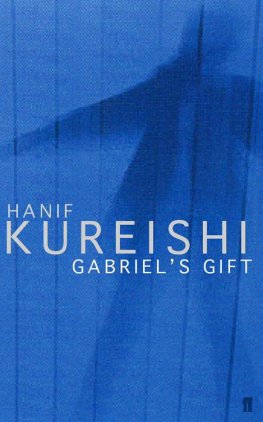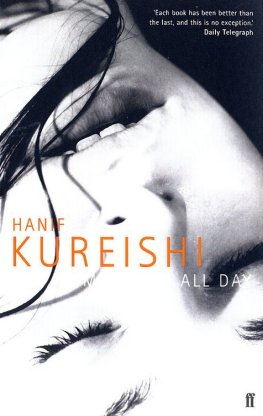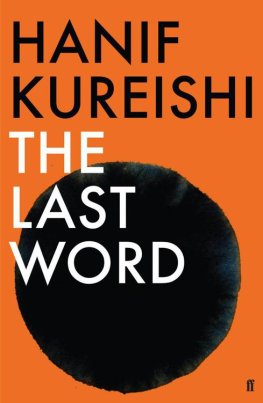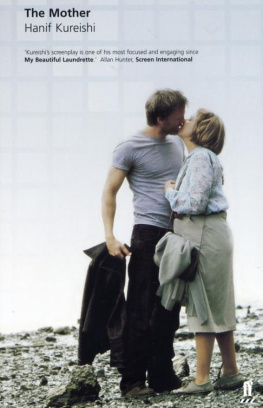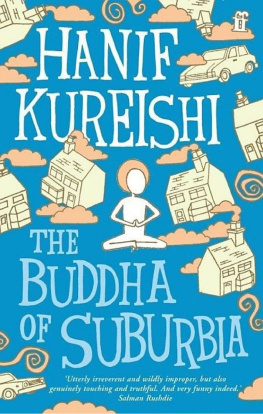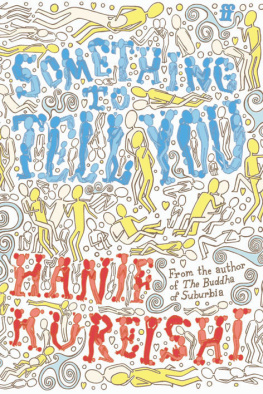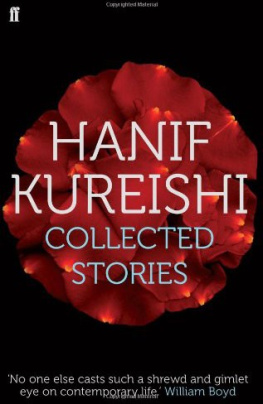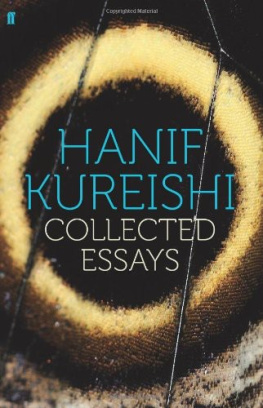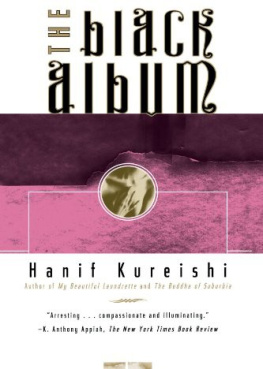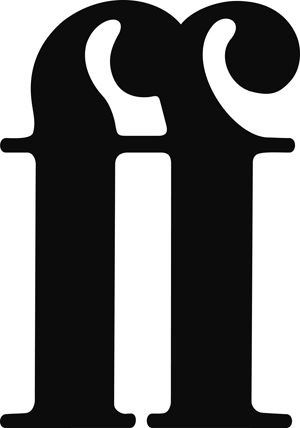Writing has been my life: I decided as a teenager that story-telling was what I wanted to do, and I was determined that it would be how I earned my living, however paltry that might be. I did attempt other things offices, theatres, bookshops but I am naturally ungregarious, bad at taking orders and lazy. I try never to leave the house before 9 a.m., and, if possible, 9 p.m. I wanted to choose my boredom. Keith Richards wasnt working in an office; Hendrix wasnt filing.
Theres a lot to be said for inactivity. Being alone in a room for a long time, with what Conrad calls liberty of imagination as well as music, coffee and pens and good paper suits me. You can pace your study, talk to yourself and nap when you like, and how many jobs can you say that about? I enjoy writing as much now as when I began, if not more. I usually start as soon as I wake up, like most of the writers I know. Some of it comes easily; most of it slowly, and I go over it until I think Im going blind. Naturally, there are periods when you cant write a thing and become convinced its all over. There are other times when youre full of it. This seems to be beyond ones control.
Being lazy doesnt mean Im not nosy and dont wallow in gossip, which is always a useful source of stories. One of my desks overlooks the street, and this being a great city of events, theres much to see, particularly after I bought the binoculars.
While London has been an exciting place to live, Britain was a relatively quiet and cosy place for most of my life. Yet there have been revolutions in finance, music and culture, in the way race and homosexuality are seen, and particularly in terms of the place of women, who were, like my mother, when I was a child at the end of the 1950s, mostly housewives, and would describe themselves as such. When women began to bust out of their roles, it altered everything for men. We had to change the way we saw ourselves; our relationships with women became more difficult, expansive and much improved. To write about human beings is to think about gender, race and class. Everyone is standing somewhere.
Many of us semi-delinquent kids in the suburbs believed we didnt fit in. To feel that one will never quite belong to any creed, religion, class or country is an opportunity to see things from the side or, as E. M. Forster puts it, from an oblique angle. I have often used autobiography the experience of being mixed-race as the starting point of a story. Beginning with the enigma of myself, of how others saw me, and with something I felt and wanted to express, I moved out into the social and political world: the end of empire, the early years of my familys life in Britain, through multiculturalism and the re-emergence of fascism in Europe, with Islam as the organising principle.
From an early age I was fascinated by writers daily activities and biographies, by how much they wrote and how they made a living; and, often, how they didnt.
There are now shelves of books about what is called creative writing, as if theres any other sort, and I enjoy reading those too. Apart from the fact that the plot is usually the least interesting part of any story, few of these guides mention the fact that frustration is the medium of any kind of achievement. In writing as, I guess, in every other art form frustration, the sense of being eternally stuck, of living in an endless interval, is essential and what writers live with all day. Frustration is an engine, a stimulus, an opportunity and a postponement, and you can use it and work with it, making doubt and anguish pleasurable. The trick is not to exit frustration prematurely: it is a generative, if not agitating, space, where you have to wait and imagine. The satisfaction of making a breakthrough, of actually finishing something, means little compared to the pleasure of striving. Finishing only means you have to begin again.
Ive been fortunate to have spent time with good writing teachers. Some editors, and most of the directors who have produced my work, have taught me about cutting and organisation, the craft of writing: order, rhythm and pace. And the use of deferral: suspense the art of withholding.
A good place to study and learn this is in the theatre, where, literally, you can hear the audience responding to the language. Most good writers know how they want their work to look and sound particularly if spoken by actors but its never stupid to hear from others. This can make the process more dialectical and collaborative than it can seem at first. And the collaborations Ive been part of, in theatre, cinema, dance and with musicians, have pushed me to do work I could never have contemplated alone.
Since I was fortunate enough to work at the Royal Court Theatre in my late teens, Ive been a teacher, and Ive always enjoyed talking about writing and stories, and how writers might trap the reader, seduce and play games with them, and generally mess them around while giving them the time of their lives. This is responsible and socially useful work. After all, most of humanity, almost every day, is attending to some form of story or another, created by a writer.
Ive never had a beef with students and their desire to say something about themselves and the world; I am usually curious to read their work and receive what they have to say. Witnessing a spark of originality, a unique way of expressing something, particularly if you yourself have encouraged it, is magical. As Chekhov says of the writers work, My business is merely to be talented. The gift of talent is, fortunately, mysterious and unevenly distributed. It can be encouraged and developed but not inherited or implanted.
I have had some disagreements with the institutions, which appear to be mostly concerned with gathering money, rather than with the improvement of their charges. However, the decline of the novel as the central form for the exploration of human beings, and the development of new media the long-form television show, podcasts, indie movies have created more opportunities for writers of all ages. Several writer friends, in their late seventies, who work with the energy of people twenty years younger, have not found themselves redundant, but are as in demand and busy with commissions and projects as theyve ever been. Ive never met a retired writer. Getting older means you have more to say and are less inhibited. Once the kids have grown up, you have more time, and what else would you do all day?
A significant alteration in the writers ecosystem has been the rise in literary festivals and events. It was rare when I was younger, at least in Britain, for writers to give readings, but it was a hugely exciting thrill to see James Baldwin, Gore Vidal or Norman Mailer being ornery and political on Sunday-night television, showing those of us who were isolated in the suburbs that writers and thinkers are not an esoteric bauble, but essential to the intellectual life of the country. Now festivals are ubiquitous, some drawing vast crowds, which is a good thing for literature, if a little nerve-wracking for scribblers who spend a lot of their lives in the dark, often becoming writers because they find it hard talking to other people, let alone addressing a multitude.
The essay is an enjoyable, intimate and flexible form which is relatively quick to write and should be easy to read. A few of the pieces collected here were written for specific occasions, like the opportunity to walk around my west London neighbourhood and describe what I saw. Others because I wanted to say something about pleasures: drugs, literature, pop. If you dont know anything until afterwards, What happened? is the writers fundamental question, where one starts to seek the words which might surround the baffling and exciting mess of existence. We are what has disturbed us, and we return repeatedly to it, with some hope of mastery at last, saying the unsayable, turning accidents into stories. Although coherence is an illusion, it is the striving and failure which makes art. Almost all of my writing in various shapes has occurred because I had an idea or set of characters who wouldnt leave me alone, and I absolutely needed to find the words to say it, whatever that

![Hanif Kureishi [Hanif Kureishi] What Happened?](/uploads/posts/book/141306/thumbs/hanif-kureishi-hanif-kureishi-what-happened.jpg)
